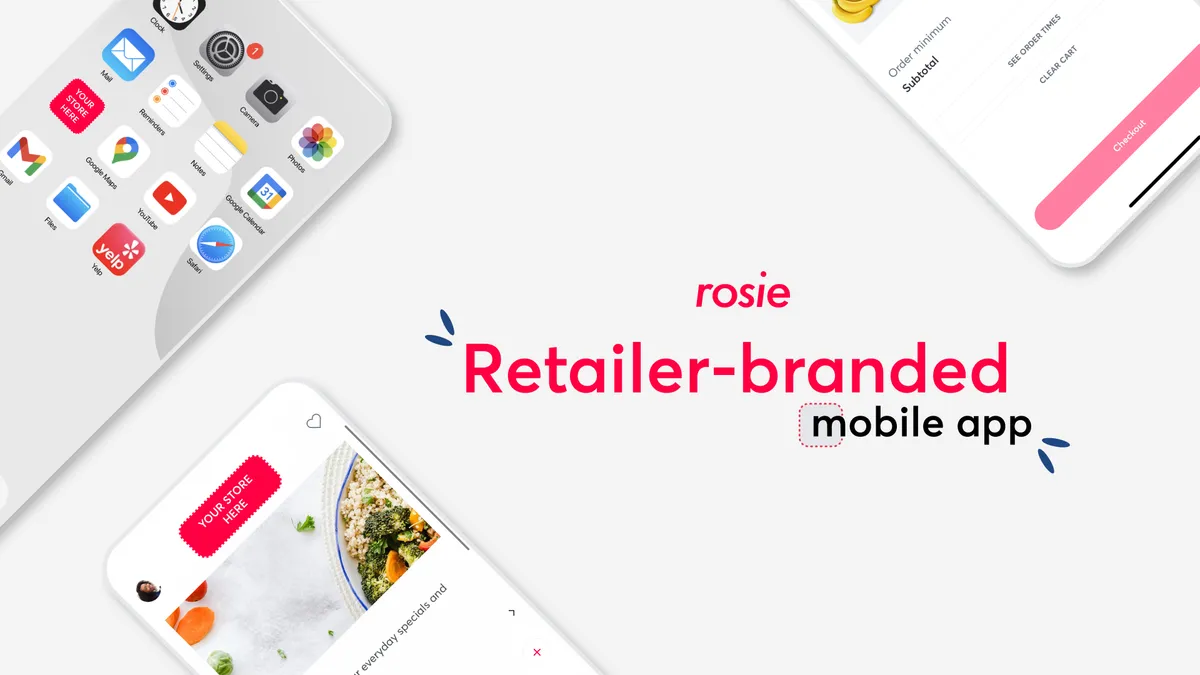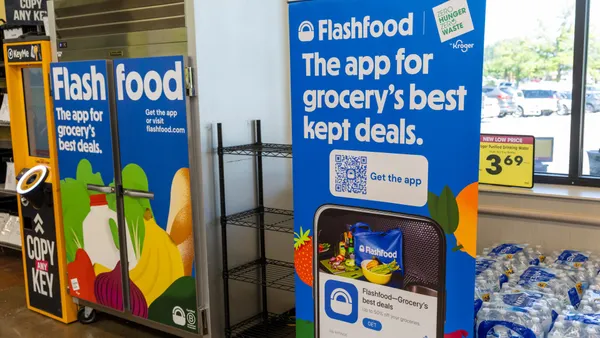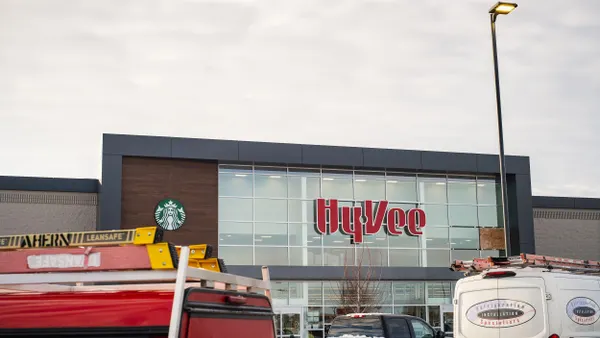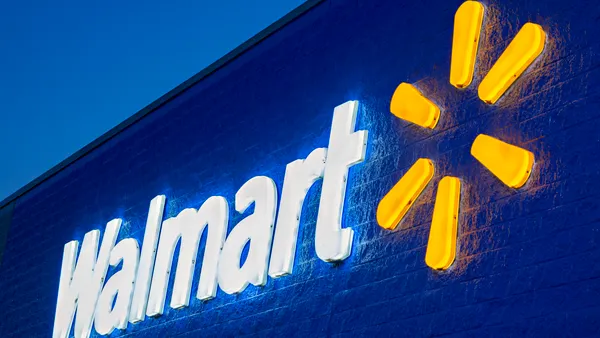Dive Brief:
- E-commerce provider Rosie has started offering a white-label mobile app solution to independent grocers, the company said in an emailed announcement.
- More than 80 grocery stores have signed up for retailer-branded apps that are expected to go live before the end of March, Dave Makar, Rosie's chief customer officer, said in an interview. Crop’s Fresh Marketplace, a single-store operator in Downingtown, Pennsylvania, and Gerrity’s Supermarkets, which has nine stores in Pennsylvania, are the first ones to roll out branded apps with Rosie.
- While branded apps are common for major players like Kroger and Walmart, Rosie's new offering aims to solve financial and technological hurdles smaller grocers often face when they look to develop e-commerce experiences that carry their name.
Dive Insight:
While consumer "app fatigue" was a concern a few years ago, Makar said independent retailers are turning to apps as a way to fulfill their appetite for branded omnichannel offerings.
Makar said the demand for retailer-specific apps is there for not just grocers, but also for customers, as Rosie looks to expand options for how they can shop. "Our expectation is there'll probably be between 200 or 300 more stores that join this year and maybe more."
More than half of shoppers on Rosie's e-commerce sites are using mobile devices, and conversion rates for shoppers are three times higher for mobile users than among people who access the online channels using desktop computers, Makar said.
“Our customers love the convenience of shopping from their phone, and now we can offer our signature experience in a way that’s familiar to them," Chad Cropper, director of operations at Crop’s, said in the announcement.
A few of Rosie's retail partners had previously rolled out their own apps either by themselves or through partnerships with other technology companies, Makar said. With its solution, Rosie is looking to address how time-consuming and expensive it can be for smaller grocers to launch and manage apps, Makar said, adding that the company wants to make branded apps more accessible to single-store operators and regional chains.
Retailers who use Rosie's branded app will serve as the registered contact and have control of elements like pricing, images and product listings.
"They own the app. It's our software that's hidden behind it and makes that possible for the retailer to participate in this online app experience with their own branding," Makar said, noting retailers don't need special coding experience or additional skill sets to manage their apps.
In the Gerrity's app, for example, customers who log in can designate their favorite items, build lists, link their rewards card to their accounts and view past orders. Shoppers can also set preferences for whether or not they want item substitutions, enable high-contrast mode and indicate if they want to use SNAP benefits as they shop the digital aisles.
Rosie is charging an installation fee to help retailers set up branded apps and helps them with the custom graphics that will appear in the app stores run by Google and Apple, Makar said. The company's operations team will help onboard retailers to help configure and launch their apps, and Rosie is looking to help grocers with a marketing plan, including in-store signage, bag stuffers, social media posts to video advertisements, Makar said. The retailer-branded apps are free for people to download.
The retailer-branded apps will co-exist with Rosie's own app, which serves as a marketplace that provides access to multiple retailers, similar to Instacart's approach. But unlike Instacart, where customers might compare prices between retailers or jump from store to store, Makar said most shoppers using Rosie pick a favorite store and stick with it.
Concerns about "app overload" — people having too many apps clogging up their smartphones — seem to have disappeared in recent years, Makar said, which may be in part due to Apple adding the ability for people to hide apps from their home screens. In recent years, grocers have increasingly turned to branded apps while also joining third-party marketplaces — or, in some cases, winding up on them without being partners. H-E-B launched its app in 2019, while Walmart recently consolidated shopping for groceries and general merchandise on its app.
The new app offering follows Rosie's $10 million Series A round completed early last year, which the company said enabled it to roll out more tools and products for omnichannel shopping. It's the latest move by Rosie, which already offers branded e-commerce for desktop shopping along with its retailer marketplace, to give independent grocers more ways to boost their digital presence.
Earlier this month, Rosie added SNAP online purchasing. Last year, the company launched one-click checkout and deep linking along with several retailer-controlled marketing tools, and added a "collections" capability for cross-merchandising and promoting specific segments.












